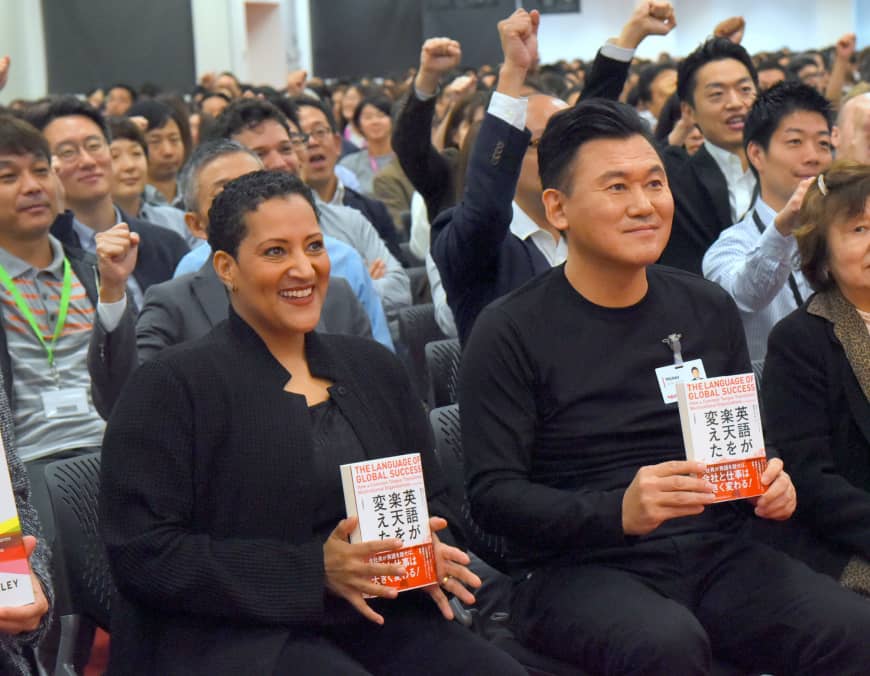
Demand for non-Japanese engineers is growing, but know what you're in for before you apply
IT engineering is a field in which there are a lot of opportunities for non-Japanese who possess sufficient skills to work in Japan. There are 28,000 non-Japanese IT engineers working in Japan currently, comprising about 3 percent of all IT engineers in Japan, according to the Ministry of Economy, Trade and Industry. The ministry projects that Japan will face a deficit of 789,000 software engineers by 2030, a gap that non-Japanese engineers are well-positioned to help fill.
The reason behind the need for engineers is in part the same as in other fields: the aging population here means there are fewer working-age people. Also, Japanese universities can’t produce enough software engineers to keep up with the demand, especially in fields such as databases and AI development. Couple this with rising demand for skilled software developers, due to increase of software-based technologies such as AI, web-based services and the internet of things.
Many Japanese firms are so much in need of non-Japanese talent that they have relaxed their normal Japanese-language requirements. One prominent example is Rakuten, which began to hire non-Japanese engineers in large numbers since making English its official language. In addition, many Japanese startups have decided to make their workplaces multicultural from the get-go, both in order to leverage non-Japanese talent and to prepare themselves for future global expansion.
Even if the workplace is an English-friendly one, it’s still the case that the more Japanese skills you have the easier your life will be at work and also in your everyday life. And for those who have the prized combination of both programming skills and good Japanese, potential opportunities increase significantly.
Working as a software engineer in Japan can be exciting, with the opportunity to get involved in the core of a company’s business in a way that is sometimes difficult for non-Japanese in other fields. The diversity can be exhilarating, as many workplaces have non-Japanese staff from a variety of countries, turning them into mini-United Nations of a sort.
On the other hand, there are some challenges for engineers that are specific to Japan. One is that the adoption of Agile software programming is much lower in Japan than in many countries, with a higher proportion of work done in the more rigid Waterfall mode. Japanese company issues of bureaucracy and slow decision-making can feel particularly frustrating in a field that is supposed to be fast-moving. Compensation levels for programmers in Japan tend to be much lower than in other countries, and particularly low in comparison with Silicon Valley standards. However many software engineers have told me they were happy to trade lower compensation for the chance to live and work here in Japan.
Source: Japan Times (https://www.japantimes.co.jp/community/2019/01/30/general/demand-non-japanese-engineers-growing-know-youre-apply/#.XFY7uPZuJpc)
Source: https://www.japantimes.co.jp/community/2019/01/30/general/demand-non-japanese-engineers-growing-know-youre-apply/#.XFY7uPZuJpc
 English
English Japan
Japan

provigil britney spears where to get modafinil reddit express scripts prior authorization form for modafinil how long should i try modafinil?
ivermectin covid treatment stromectol south africa ivermectin liquid dogs jr enterprises how do i get ivermectin for humans
walmart coupons printable what is sildenafil 20 mg tablet doctor x viagra sildenafil 20 mg tablet coupon cost of cialis at walmart
plaquenil blindness hydroxychloroquine sulfate tab 200 mg methotrexate and plaquenil chemotherapy for lupus how do i get off the drug plaquenil
modafinil forums buying provigil online without a prescription how many days in a row can you take modafinil
neurontin 300mg capsule gabapentin 150 mg tablet hertz type of neurontin pain pill together what class of drugs is gabapentin
cymbalta and neurontin alternatives to neurontin for nerve pain what is the most common side effect of gabapentin?
what tier is cialis side effects of viagra do not eat grapefruit with these medications irwin naturals steel libido reviews alcohol pharmacology mechanism of action taking revatio for ed viagra no prescription joke about viagra penile enhancement real photos tips for taking cialis viagra tablet boost libido for men viagra benefits and side effects viagra alternatives generic viagra by mail sildenafil 50 mg generic cialis by mail fun with viagra walgreens viagra best online doctors prescriptions viagra pills for sale how much is one viagra pill herb viagra does cvs caremark cover cialis how to make natural viagra alternatives to viagra belviq reviews from users how to use sildenafil 20 mg pharmacy discount card cvs viagra printable coupons 2017
neurontin urinary retention gabapentin 102 neurontin gabapentin 300 mg kapsul what foods to avoid while taking gabapentin?
prednisone reviews compare prednisone prices amoxicillin and prednisone for sinus infection prednisone what is it used for
cost of 100mg viagra pill cialis mechanism of action contrave generic equivalent viagra en ligne do not take viagra with do cvs extra bucks expire teva sildenafil for sale usa
atrovent vs albuterol where can i buy ventolin online how often to use albuterol what does albuterol sulfate treat
zithromax wiki azithromycin in canada can you drink alcohol on zithromax how much azithromycin to take
dapoxetine ethanate dapoxetine online australia viagra plus dapoxetine usage directions what issildeafil&dapoxetine-cenforce-d
zithromax generic azithromycin 250 mg no prescription australia side effects of zithromax for chlamydia how long for azithromycin to take effect
cialis for sell how long can you keep viagra pills buy viagra cialis for daily use prices walmart pharmacy refill request
provigil generic name how to buy provigil online should provigil and strattera be taken together why does provigil take so long to work
medication to decrease male libido viagra 40 pills for 99 viagras side effects viagra vs cialis viagra trial samples eli lilly free insulin coupon